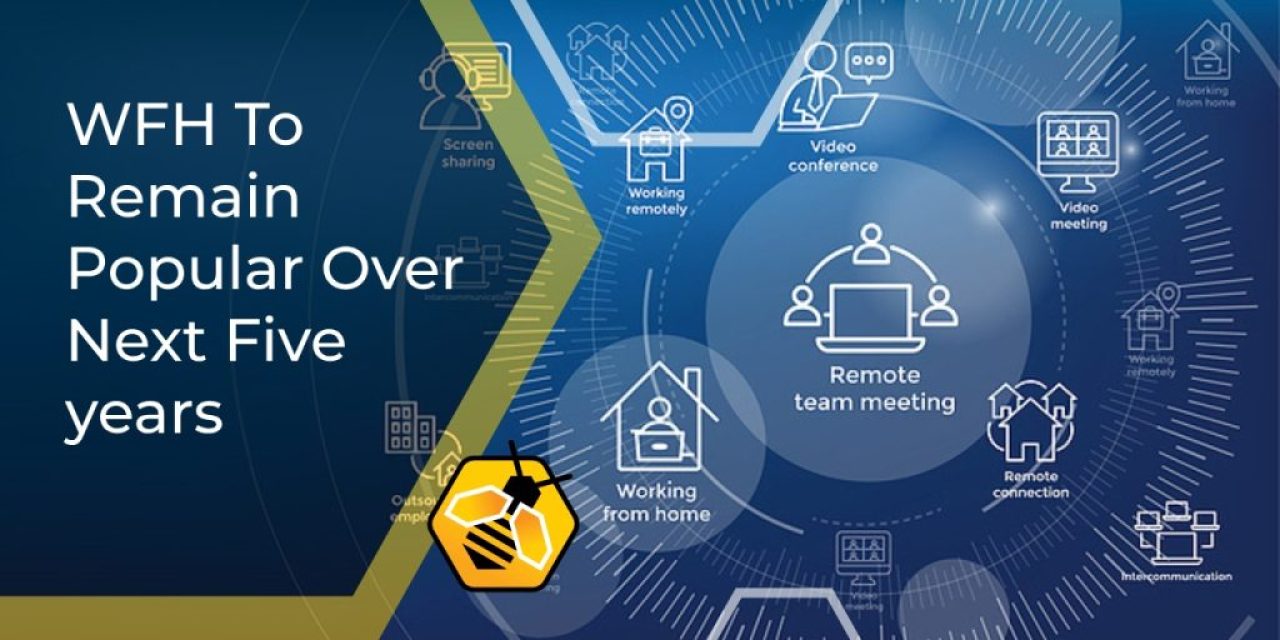Working From Home Set To Be As Popular In 2028 As It Is Now
Over the last four years, the landscape of office working has completely changed. Due to the working-from-home order during the pandemic to avoid people spreading Covid-19, many Brits have not returned to full-time office work, relying instead on the latest telecoms technology for clear and coherent communication between staff members.
In fact, 28 per cent of working adults typically adopt a hybrid approach to work, spending some days at home and others in the office, according to recent government figures.
They also revealed that as much as 16 per cent only work from home, with this increasing to 32 per cent for those who are self-employed.
People who have a degree, are in a professional occupation, or work in the highest income band are more likely to work from home, at least some of the time.
This shows that while lockdown came to an end in 2021, a huge number of Brits still want to enjoy the benefits of working from home, including not having to endure a long commute, living further out of the city and taking advantage of cheaper property prices, dropping off or picking up the kids from school, and saving money on transportation.
Working from home is here to stay
In fact, the working-from-home approach does not look like it is going anywhere, with a recent study showing that UK managers expect it to remain just as popular in 2028 as it is now.
The Decision Maker Panel (DMP), which is produced by the Bank of England, Stanford University, King’s College London, and the University of Nottingham, reported that the proportion of employees who work hybrid jobs has increased from six per cent to 30 per cent since 2018.
It also showed that those who work fully remote has risen by four per cent to just under eight per cent over the last five years.
A huge number of the 2,500 firms that took part in the survey thought that workers who will have a hybrid approach to work will fall slightly by 2028, while those working fully remotely will increase.
Which industries work from home the most?
Not all industries are able to work from home, including healthcare and hospitality. In contrast, the sector with the largest proportion of home- and hybrid-workers is information and communication.
The average number of days working remotely for employees is almost 2.5 in this industry, followed by prof and scientific, with workers typically staying at home for almost two days a week.
Finance and insurance also has a large number of homeworkers, followed by admin and support, and real estate.
What are the benefits of hybrid working for businesses?
Although many large companies have been trying to get workers back into the office more frequently, such as Google and Meta, there are lots of advantages for businesses to have their workers at home some of the time.
- More productive
For a start, lots of employees believe they get more work done in their house than they do in the office, as they are not distracted by chit-chat and do not have to waste time on the commute.
In fact, they think they are two per cent more productive working from home than they would be otherwise. This amounts to an average of £15,000 extra for each day an employee works remotely.
- Lower wages
Working from home is also associated with a lower rate of wage growth. This could be due to the fact that employees are saving money on transport or car fuel, or because businesses are now able to hire from a wider area, so may be able to recruit people who do not command such a high salary.
Many workers also favour flexible working arrangements over a higher wage, which enables companies to spend less on salaries if they offer hybrid working.
- Lower costs
Another benefit for businesses is they do not have to spend as much money on their office set-up. For instance, they can have less space and fewer desks if some employees are working from home on any one day. This has a ripple effect on energy costs, as fewer people are using the electricity, water and facilities.
As working from home is extremely popular still, many employees are likely to remain loyal to their company if they offer flexible working arrangements. Therefore, they can spend less on recruitment.
Importance of telecoms technology
While enterprises can save money in these areas, it is important they re-invest some of their savings into good-quality telecoms, so that all employees, wherever they are, are able to communicate with each other quickly and effectively.
By making conference calls with a Voice over Internet Protocol (VoIP) system rather than a telephone line, everyone is more likely to be able to hear each other properly and the call will be of a better quality.
It works by enabling the voice to travel over the internet by converting it into a digital signal first. Therefore, employees do not need to worry about the quality of their telephone line, as they will not lose signal as long as they have a steady broadband connection.
Lots of businesses also provide mobile phone contracts to staff members so they can contact clients easily. This also provides reassurance to the company that the internet connection is good and they have a big enough data package to conduct their work appropriately.
This enables staff to send large documents, join in conference calls, telephone clients anywhere in the world, and use a range of smartphone apps that they might otherwise not have on their personal phone.
Companies willing to allow their staff to work remotely need to ensure they are set up properly so they can upload to the cloud easily, always be in contact, and do not miss out on crucial information just because they are not in the office.
These days, everyone is contactable if they want to be, but it is essential to make sure they are equipped with the right technology first. Without this, employees cannot be as productive or efficient as they could be, and cannot remain up to date with daily changes in the business.




